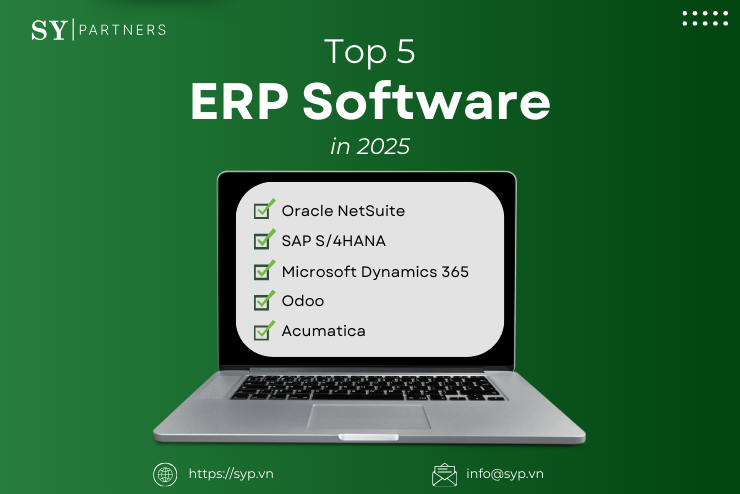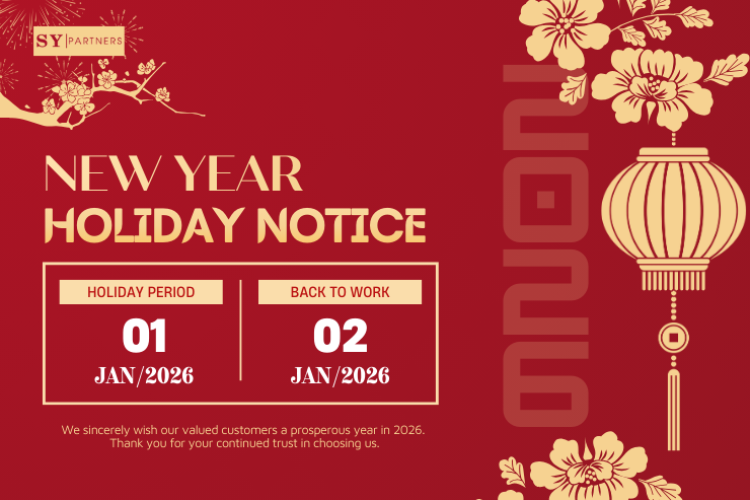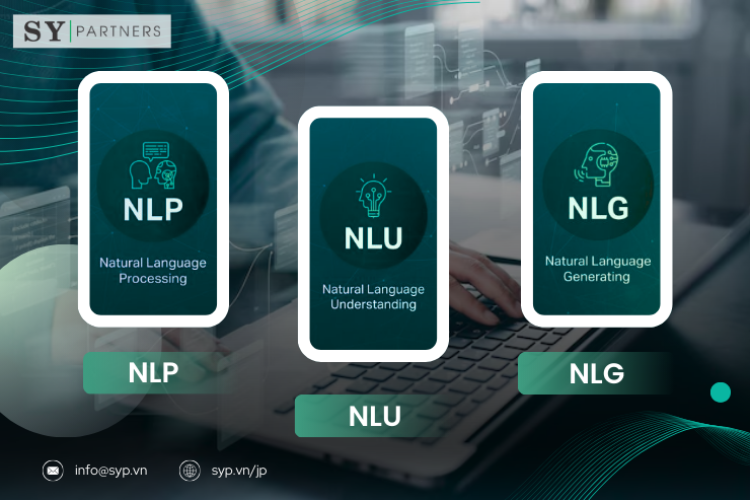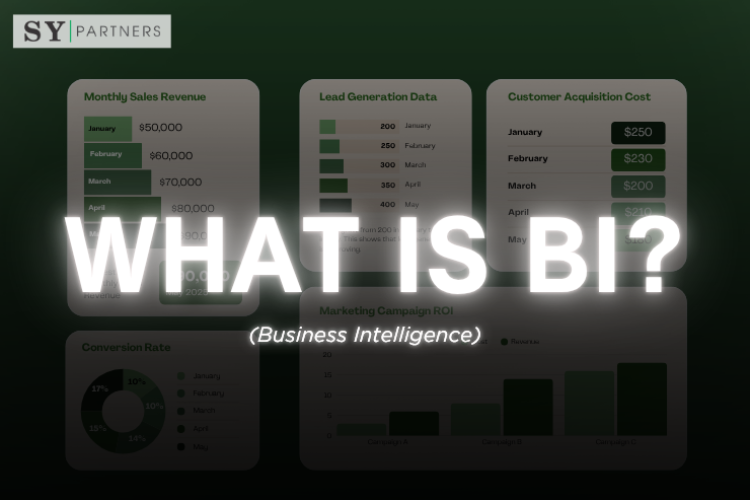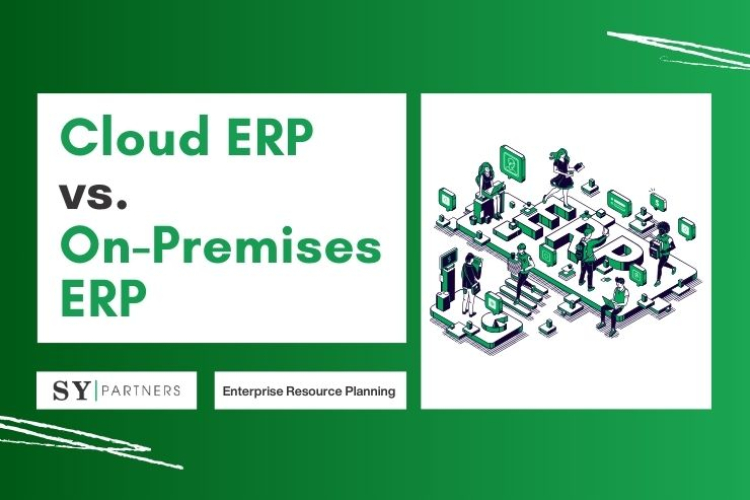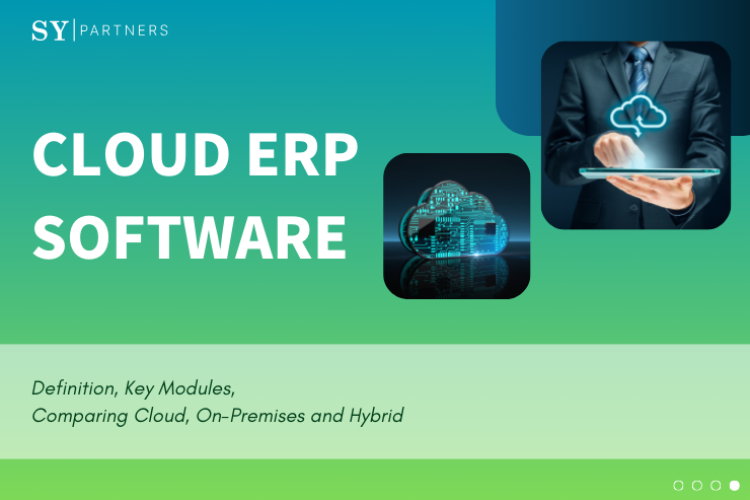Top 5 ERP Software in 2025
Enterprise Resource Planning (ERP) systems are crucial for integrating and managing a company's core business processes, including finance, human resources, supply chain, and more. As we approach 2025, several ERP solutions stand out for their advanced features, scalability, and ability to adapt to evolving business needs. Here are the top 5 ERP software options to consider for your business in 2025.
Do you want to get a deeper dive into Cloud ERP Software?
Read our article: What is Cloud ERP Software? | Definition, Key Modules | Comparing Cloud, On-Premises and Hybrid
| Best for | Pricing |
Oracle NetSuite | Businesses of all sizes | $$$ |
SAP S/4HANA | Large, complex, diverse, or multinational organizations | $$$$ |
Microsoft Dynamics 365 | Dynamic use cases | $$$ |
Odoo | Custom business processes | $$ |
| Acumatica | User experience | $$ |
1. Oracle NetSuite
Key Benefits
- Comprehensive Financial Management: Streamlines financial operations with real-time visibility.
- Real-Time Dashboards: Provides instant access to key performance indicators and business metrics.
- Strong Scalability: Easily scales to accommodate business growth and expanding operations.
Ideal For
Growing medium to large enterprises needing advanced accounting and global operations support. Organizations looking for a unified platform that integrates various business functions seamlessly will find Oracle NetSuite highly beneficial.
Link: Oracle NetSuite
2. SAP S/4HANA
Key Benefits
- AI-Driven Insights: Leverages artificial intelligence to provide predictive analytics and intelligent automation.
- Robust Analytics: Offers powerful data analysis tools for informed decision-making.
- Deep Industry-Specific Modules: Tailored solutions for sectors like manufacturing, retail, and finance.
Ideal For
Large organizations requiring extensive customization and real-time data processing. Businesses that need a highly adaptable ERP system to meet complex industry requirements will benefit from SAP S/4HANA's robust features.
Link: SAP S/4HANA
3. Microsoft Dynamics 365
Key Benefits
- Seamless Integration with Office 365: Enhances productivity by integrating with familiar Microsoft tools.
- Strong CRM Capabilities: Combines customer relationship management with ERP functionalities.
- Flexible Cloud/On-Premise Deployment: Offers versatile deployment options to suit various business needs.
Ideal For
Businesses already invested in the Microsoft ecosystem, seeking unified sales, service, and finance operations. Companies looking for a flexible ERP solution that integrates smoothly with existing Microsoft products will find Dynamics 365 ideal.
Link: Microsoft Dynamics 365
4. Odoo
Key Benefits
- Open-Source Flexibility: Allows extensive customization and adaptability to unique business processes.
- Wide Range of Integrated Apps: Offers a comprehensive suite of applications covering all business functions.
- Competitive Pricing: Provides cost-effective solutions without compromising on functionality.
Ideal For
SMEs wanting cost-effective customization with an active developer community. Organizations seeking an affordable yet highly customizable ERP system will find Odoo to be a perfect fit, especially those looking to leverage open-source advantages.
Link: Odoo
5. Acumatica
Key Benefits
- Cloud-Native Design: Fully optimized for cloud deployment, ensuring high availability and accessibility.
- Mobile-Friendly Interface: Enhances user experience with responsive design for mobile devices.
- Robust Distribution and Commerce Features: Supports complex distribution networks and e-commerce operations effectively.
Ideal For
Mid-sized companies looking for modern, scalable ERP solutions with real-time data access. Businesses that require a mobile-accessible ERP system with strong distribution and commerce capabilities will benefit greatly from Acumatica.
Link: Acumatica
Harnessing the Power of Deep Learning in ERP, SCM, and MES Systems with this article.
Conclusion
Selecting the right ERP software is vital for optimizing operations and driving growth in 2025. Each solution—Oracle NetSuite, SAP S/4HANA, Microsoft Dynamics 365, Odoo, and Acumatica—caters to unique needs, from scalability to industry-specific features. Assess your business size, budget, and requirements to choose the platform that aligns with your goals and ensures success in an evolving market.


 EN
EN JP
JP KR
KR